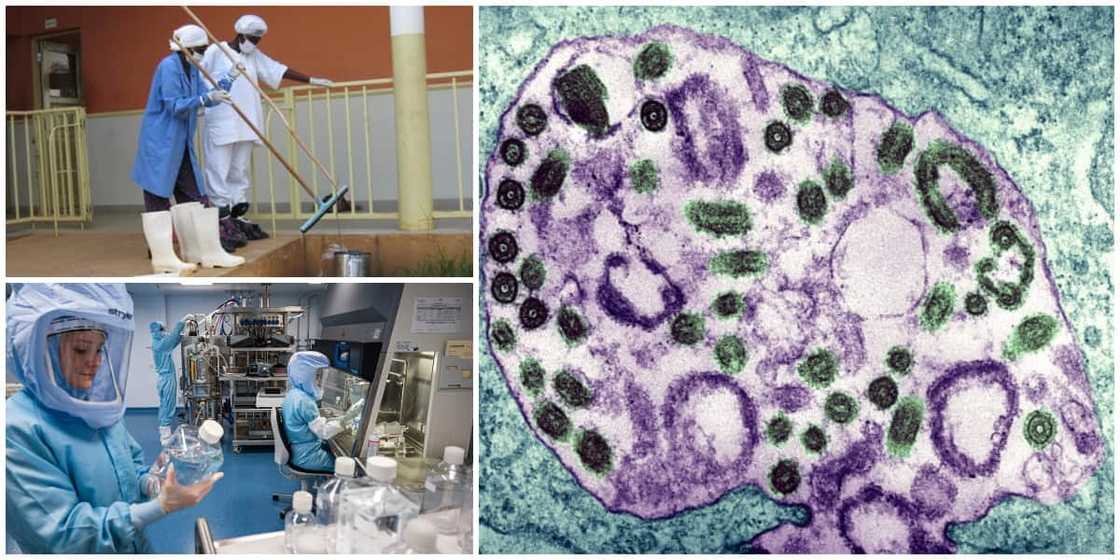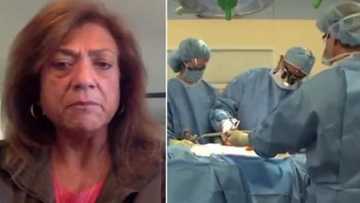Marburg Virus: 4 Real Truths about the Extremely Dangerous Disease Many Fear May be the Next Pandemic
The Marburg virus was first discovered in German cities of Marburg and Frankfurt and the Yugoslav capital Belgrade in 1967 but has taken the centre of medical discussions in recent times owing to the lives it has claimed on the African continent.
PAY ATTENTION: Click “See First” under the “Following” tab to see Briefly News on your News Feed!

Source: UGC
Al Jazeera reports that Guinea recently confirmed that a man had passed away from the Marburg that is said to be associated with the deadly Ebola virus.
Briefly News presents in this article 4 truths about the extremely dangerous virus that seems to be rearing its ugly head on the planet again.
1. It can spread through human-to-human contact
Described by the World Health Organization (WHO) as extremely dangerous, Marburg virus can be spread through direct human-to-human contact.
PAY ATTENTION: Never miss breaking news – join Briefly News' Telegram channel!
This can be either via blood, secretions and other bodily fluids of infected people.
When one comes in contact with surfaces and materials that have been contaminated such person can get infected.
2. The highest human death recorded in a year since its discovery is over 200
Wikipedia reports that since the virus got its name in 1967, the highest ever recorded deaths caused by the virus in a single year is 227.
The 227 deaths were recorded between 20904-2005 in Angola. Durba and Watsa, Democratic Republic of the Congo recorded the second highest with 128 deaths but this was at a span of 1998-2000.
3. Symptoms of Marburg virus
According to WHO, symptoms of the deadly virus include but not limited to severe headache and severe malaise, watery diarrhoea, abdominal pain and cramping.
Patients may also experience severe haemorrhagic manifestations within the first 7 days coupled with fresh blood in vomits and faeces and spontaneous bleeding at venepuncture sites.
4. There is no cure for the virus yet
The virus is yet to have a cure.
At the moment, measures that can be taken when one is infected, according to Centre for Disease Control and Prevention (CDC), include balancing the patient's fluids and electrolytes, replacing lost blood and clotting factors and maintaining oxygen status and blood pressure.
Rami Chuene shares her Covid vaccine jab experience: "I almost died"
Rami Chuene took to social media recently to share her experience after getting her first Covid-19 jab. The actress told her fans that she experienced side effects after getting vaccinated for the deadly virus.
The former The Queen star was reacting to a tweep who asked people to share their vaccine experiences. Even though the vaccine affected her health, she made it clear that her comment was not aimed at discouraging people from getting their jabs.
Source: Briefly News

Stefan Mack (Editor) Stefan Mack is an English and history teacher who has broadened his horizons with journalism. He enjoys experiencing the human condition through the world's media. Stefan keeps Briefly News' readers entertained during the weekend. He graduated from the University of KwaZulu-Natal in 2010 with a Bachelor of Education (BEd), majoring in History and English. Stefan has been writing for Briefly News for a number of years and has covered mainstream to human interest articles.

Kelly Lippke (Senior Editor) Kelly Lippke is a copy editor/proofreader who started her career at the Northern-Natal Courier with a BA in Communication Science/Psychology (Unisa, 2007). Kelly has worked for several Caxton publications, including the Highway Mail and Northglen News. Kelly’s unique editing perspective stems from an additional major in Linguistics. Kelly joined Briefly News in 2018 and she has 16 years of experience. Kelly has also passed a set of trainings by Google News Initiative. You can reach her at kelly.lippke@briefly.co.za.


